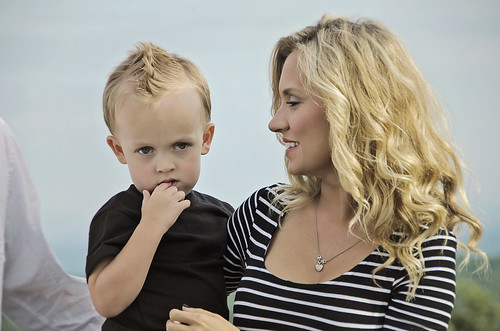A Tale of Two Mothers and Two Mindsets
Different mothers have different mindsets. Last week my wife (who herself mothers two children quite well) directed me to an article on parenting in the Washington Post. In the article, a mother was confronted by her 4th grade daughter for writing about her and posting her pictures all over the internet for her articles.

As I read through the article, I was struck by the thought process of the mother. She acknowledges that she had to intentionally fight against the peer pressure of mothers to sacrifice for their kids. She knows that most mothers or fathers in her position stop writing about their kids to protect their privacy and allow them to be their own individual. But she says in the article, “I respect that approach and understand why it works for many writers, but it’s not a promise I can make. … Promising not to write about her anymore would mean shutting down a vital part of myself, which isn’t necessarily good for me or her.”
When I read that thought process, I couldn’t help but see a tale of two mothers. One mother, who according to the article, prioritizes her own goals, dreams, and aspirations. On the other hand, the biblical picture of a mother who is filled with sacrificial service for her family, to provide, protect, and instruct them in the ways of the Lord.
The mother of Prov 31:10–31 is perhaps the most famous of mothers in all Scripture. She has an exemplary relationship with her husband (vv. 11-12), she is hard working of course (vv. 13–19), she is generous (v. 20), strong (v. 25), and wise (v. 26). There is much that could be said about her.
An insightful observation for us though, is that she cares abundantly for her family (esp. vv. 21, 23, 27–28). In fact, Prov 31:28 says that, “Her children rise up and call her blessed.” The wise mother conducts her life in a way that draws praise from her family (also her husband—v. 28b).
This description of a godly mother is endorsed by Paul in Titus 2:3–5 where he gives instruction to older women and younger women. In instructing the older women, he tells them to teach the younger women to be lovers of their husbands and children (v. 4), and to be “working at home” (v. 5).
These are all family terms. Loving one’s husband and children is important for mothers because it is integral to a fully functioning home. The biblical concept of love involves sacrifice (cf. 1 Cor 13:4–7). All Christians are taught to love and sacrifice, and one of the best example of that is to be found in the family relationship.
The idea of “working at home” is the idea of making sure the household is well taken care of. It may be unpopular in larger culture today, but the mother’s priority is that of her household. In our career-driven society, this message is not often well received. But it is the biblical perspective.
When I was made aware of the parenting viewpoint found in the above article, I was not surprised. But, I was saddened. I imagine many mothers and fathers in the church fall prey to a similar anti-sacrificial mindset. This is the tale of two mothers, but it definitely applies to more than just mothers. On the one hand, we see a mother who dodges and weaves to try and make sure her desires are fulfilled. On the other hand, we see the Proverbs 31 mother, who lives and sacrifices for her family, providing for them, working for them, and teaching them about the Lord—because that is her deepest desire. One of those mothers will be called blessed by her family. May the Lord give the church mothers like Proverbs 31.
photo credit: Javcon117* Jen & Maddixx via photopin (license)
For more on the blessing of mothers, see A Tribute to Every Mother and Their Special Role.